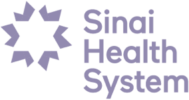Improving Performance Capacity Via Lean Value Stream
Project Overview
Industry
Manufacturing
Company
Glass Manufacturer
Results
At project conception, the company was experiencing a $780,000 operating loss. Upon project completion, the company achieved a $750,000 operating income. The projected year-to-year improvement is $1.5 million in operating income.
Tools Used
Juran Management System
Timeline
Four months
Problem Statement
This glass fabrication facility was performing well below their potential capacity, resulting in a net operating loss rather than producing a profit.
In order to rectify the situation, significant improvements were needed to increase productivity and throughput while decreasing operational costs, downtime, overtime, cycle time, waste, and inventory.
Business Case
With strong market growth in nearby territories, there was significant opportunity to increase sales and market share and improve productivity to become profitable.
Project Goal
The goal was to optimize the manufacturer’s current processes by increasing the current daily production rate of 4,000 sq. ft. per shift to 7,500 sq. ft. per shift with no additional staff. With this increase, the plant would become profitable.
Analysis
Tools used in the analysis included:
- 6S
- Manufacturing Process Analysis – Current State
- Eliminate/minimize non-value added activity
- Metrics – what is measured, what should be measured, how to measure
- Milestone chart
- Kanbans ▪ Supermarkets
- Action item list with accountability
- Standard Work Documents
- Spaghetti Diagrams
- Manufacturing Process – Future State
- Production Control Boards – Visual Manufacturing
- Customer Pull Scheduling and Level Loading
- Continuous team coaching
Implementation
The Juran Manufacturing Team worked closely with the manufacturer to develop a phased and incremental project schedule. Worker behavior was observed, process steps were mapped, and WIP was timed. It was discovered that there were areas throughout the plant that had become “catch-alls” for inventory, unused materials, and items with no specific ownership. There were tools all over the workplace with no specific places for them.
5S (plus 6S-Safety) was implemented throughout the plant to create a clean and orderly workspace where everything that was needed could be found easily and was readily available in the right quantities and at the appropriate times.
By conducting a value-added vs. non-value added analysis, the team identified areas where relatively small changes could result in dramatic improvements in a short time. One such area was the Frame Assembly area. Through a simple re-layout of this area, excess handling and product movement was dramatically reduced. A standard work process was developed and implemented.
Juran worked with the Manufacturing Team to develop a data collection plan for per shift process control. Supervisors had to track the production every hour for a rolled up number per shift of the planned vs. actual square footage produced. Re-cuts and re-work were also monitored for process improvement opportunities.
Auto-cut
- Improved inventory layout and access
- Scheduled adherence
- Analysis of inventory and elimination of unused inventory
- Prioritization process for re-cuts
Tempering
- Improved oven capacity utilization
- Increased productivity at unloading of ovens
Insulating
- Optimized pick-up of glass
- Eliminated unnecessary non-value added motion
Results
Through systematic and incremental improvements, the team reached their goal of increasing the square footage from the current state of 4,000 sq. ft. per shift to the future state of 7,500 sq. ft. per shift with no additional headcount.
Transform Your Business
Get in touch with us for more information on how we can help your organization attain sustainable results, and start your journey towards world class quality.







